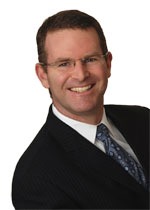
By Steve Lowrie, Lowrie Financial
Special to the Financial Independence Hub
In recently revisiting Jim Collins’ classic, bestselling business book “Good to Great,” I was reminded of this timeless tip:
Successful business owners make as much use of “stop doing” lists as they do of “to do” lists.
“Most of us lead busy but undisciplined lives,” says Collins. “We have ever-expanding ‘to do’ lists, trying to build momentum by doing, doing, doing – and doing more. And it rarely works.” In his related piece, “Pulling the Plug,” He adds: “One key decision about what to stop doing might have as much impact as five new initiatives.”
Stop Reacting to Market Noise
Having a “stop doing” list seems like a fantastic idea – in business, in life and especially in your financial management. So often, I see investors who would probably be doing fine if they would just form a plan that reflects their personal goals, build a low-cost, globally diversified portfolio that complements those plans … then STOP reacting to near-term market noise that distracts them from their focus.
And Stop Reacting to Others Who React to Market Noise
Investors aren’t alone in their need for a “stop-doing” list. They are all too often aided and abetted by a financial press that is forever feeding them “breaking news” on subjects that are best served through regular repetition of timeless sound advice.
The press should stop doing this – at least as much of it – and especially when it involves drawing long-term conclusions based on near-term news.
Start Heeding the Lasting Evidence
Take recent coverage of Dimensional Fund Advisors’ family of funds. As we describe on our website: “DFA’s role is to build efficient, cost-effective investment vehicles. Our role is to ensure that investors make best use of those vehicles by maintaining a patient approach in their personal investing.”
Dimensional has been doing what it does since 1981, based on a body of academic evidence compiled by Nobel laureate Eugene Fama, Ken French and many other scholarly peers who have been studying the science of capital markets since the 1950s. In a recent Q&A post on the Fama/French Forum, Professors Fama and French observed:
“What can one learn from one, three, or five years of past returns about a manager’s skill or about the future performance of an investment? The short answer: usually almost nothing. The longer answer depends on the specific investment and what you are trying to measure. Many decades of prior returns, for example, are not enough to make a precise estimate of the expected return on the stock market or of factor risk premiums.”
Contrast this with a recent piece in The Globe and Mail, in which the columnist reports disappointing returns in some of DFA’s Canadian investment strategies … based on five-years of performance. As we recently covered in “The risks of reacting to recent news,” abandoning a well-built strategy based on fleeting results is like responding to the market’s “weather” rather than participating in its lasting “climate.”
Stay Invested To Capture Expected Returns
In fact, it is precisely because of these periods of underperformance (which can sometimes be uncomfortably lengthy), that the market is expected to deliver long-term returns to those who have the stamina to see it through. That’s what an overwhelming body of research on the relationship between capital risk and return has shown us. Moreover, as touched on in one of our existing Q&As, “How not to invest,” trying to time when to be in and out of the market is unlikely to improve on your outcomes anyway.
Helping investors stick to their well-constructed financial “stop doing” list is one way in which we evidence-based advisors earn our fees and then some. The alternate approach of indecisively leaping from one investment trend to the next is one of the most expensive ways we know of “to do” the market.
Steve Lowrie holds the CFA designation and has over 20 years of experience dealing with individual investors. Before creating Lowrie Financial in 2009, he worked at various Bay Street brokerage firms both as an advisor and in management. “I help investors ignore the Wall and Bay Street hype and hysteria, and focus on what’s best for themselves.”
Part 1 of the “Stop Doing” series ran last Tuesday: Stop Feeding on Junk Media.



